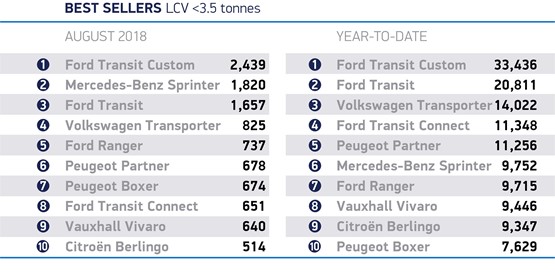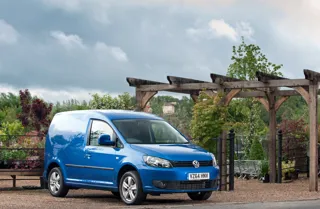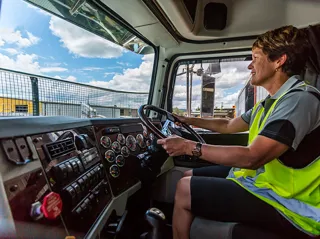The light commercial vehicle (LCV) market grew last month, according to figures released by the Society of Motor Manufacturers and Traders (SMMT).
Just over 16,000 new LCVs were registered in the traditionally quiet month of August, representing a 5% increase in demand.
Pickups experienced the largest rise in the month up 21.4%, while demand for large vans saw a 14.6% increase to take over two-thirds (67.2%) of all van registrations. Meanwhile, it was a different picture for small and medium sized vans, which fell 9.3% and 29.7% respectively.
Year-to-date registrations are down 2.2%, with 220,399 new LCVs joining British roads so far this year, as fluctuating registrations caused by variations in fleet buying cycles and business confidence continue to affect the market.
Mike Hawes, SMMT chief executive, said, “August is typically one of the quietest months for new LCV registrations, so the increase in demand for these high-tech, ultra-low and zero-emission vehicles is especially welcome news.
“While year-to-date figures show the market remains at a reasonably high level, weak business confidence and uncertainty means fluctuations in demand will likely continue throughout year.”
Russell Adams, commercial vehicle manager for Lex Autolease, told Commercial Fleet that the rise in new van registrations in August demonstrates that demand remains high, with the total number of new light commercial vehicles registered in 2018 set to, yet again, be significantly higher than 300,000.
He said electrification is also firmly on the agenda for most commercial fleet managers. “Increased range in the 2.0 to 2.5 tonne vehicle category is helping retailers make greater use of electric vehicles, particularly in London where this allows delivery vans to reach new boroughs,” continued Adams.
“Expansion of low emission zones and congestion charges outside of London, and the prospect of updated Euro emissions standards at some point in the future are further fuelling demand for alternatively fuelled vehicles.
“Within this climate, operators of light commercial vehicles are increasingly looking for flexibility in their fleet, further driving demand for leasing. Overall, a full understanding the job role remains essential for selecting the right vehicle and fuel type.”



























Login to comment
Comments
No comments have been made yet.